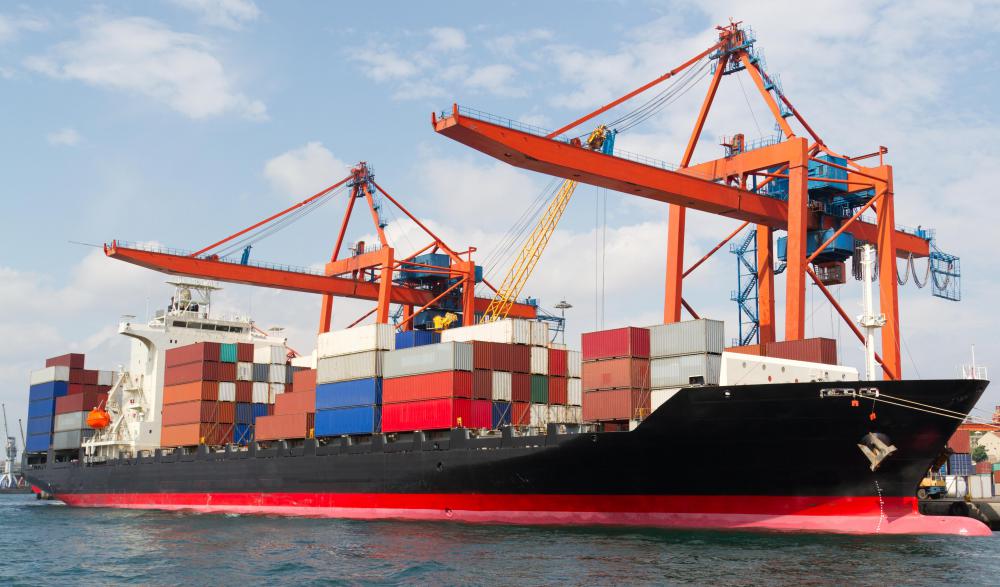At WiseGEEK, we're committed to delivering accurate, trustworthy information. Our expert-authored content is rigorously fact-checked and sourced from credible authorities. Discover how we uphold the highest standards in providing you with reliable knowledge.
What Are Import Charges?
Nations around the world frequently charge import charges, or tariffs, when goods are imported into the country from another country. There are a number of reasons why import charges are a common practice, such as to provide a revenue source for the government, to protect domestic products, or to prevent specific products from being imported. As a result, import charges generally fall into one of three categories — revenue producing, protective, or prohibitive. The amount a country charges for importing goods will depend largely on the reason for the tariff.
Although the world has become a much more international marketplace, each individual country continues to enact legislation and support policies that both provide revenue for the country and protect the products produced in the country. When a good is imported into a foreign country, it must first pass through customs. One of the purposes of requiring all goods to pass through customs is to make sure that all import charges are collected before the goods can continue into the country. The only way to avoid import charges is to smuggle goods into a country which is, of course, illegal.

Revenue producing tariffs are a common practice around the world. A revenue tariff is usually a charge set on a good based either on the value of the good or on a product-specific price, which is intended only as a source of income for the government. Revenue import charges are generally reasonable in relation to the value of the good being imported, and are often set by agreement between several nations.

Protectionist import charges, on the other hand, are intended to protect domestic products. By charging a hefty tariff on a particular good entering a country, it usually makes it more likely that consumers will purchase the domestic equivalent, as the tariff makes the imported product more expensive. In countries where child labor is used, for example, to produce products at a substantially lower cost, the only way for competing countries to protect their own domestic product is to impose high import charges on the importation of those goods.

Less often used, a prohibitive tariff, as the name implies, is intended to prohibit the importation of a good. For a variety of policy reasons, it is often easier to enact extremely high import charges on a product than to try to ban the product altogether. If the tariff set is high enough, it will have the same effect as a ban.
AS FEATURED ON:
AS FEATURED ON:













Discuss this Article
Post your comments